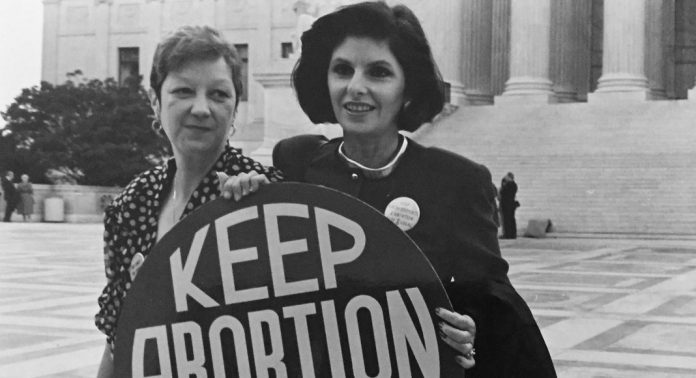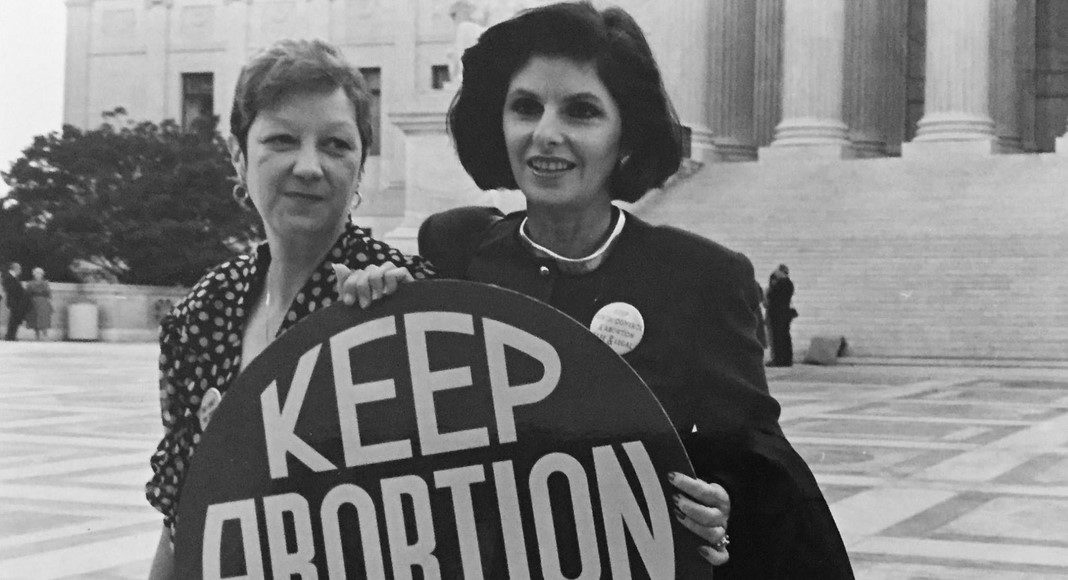
New restrictions on access to abortion by several states (Alabama, Georgia, Louisiana …) have put the subject back on the political agenda – and at the heart of the upcoming presidential campaign.
Abortion has in fact been an eminently partisan subject for over thirty years. However, this was not necessarily the case before the Supreme Court decision "Roe V. Wade", which legalized abortion in 1973. The US population was overwhelmingly in favor of changing the laws on the interruption. pregnancy, which was considered a crime in many states. Linda Greenhouse, who covered the US Supreme Court for the New York Times for 30 years, earning her a Pulitzer Prize, tells how access to abortion has become a political issue: " In the late 1970s, the Republican Party made an alliance with conservative religious groups (Catholics and Evangelists) to gain political support. It was achieved when Ronald Reagan ran in the presidential elections. He based his campaign on anti-abortion speech and had a lot of support from conservative religious groups. It is from this moment that the movement "Pro-life" has grown in importance, about ten years after Roe V. Wade.
The politicization of the abortion issue then helped to solidify the camp of "Pro-life". The Catholic vote, for example, has evolved explains Linda Greenhouse. While Catholic voters were previously rather in favor of legalization, "Church became active on the subject, being a good Catholic meant being against abortion, detailed the journalist. The Republicans, becoming the anti-abortion party, managed to attract a Catholic electorate, which previously voted mainly for the Democratic party.
Director of Healthy and Free Tennessee, an organization "Pro choice", Anna Carella, believes that more recently, the rise of the Tea Party in 2010 explains the return to force of the issue of abortion. This movement, which notably criticized the government spending that increased under the Obama administration, allowed the evangelical right to strengthen considerably within the Republican party.
Today, these elected officials, mainly in the southern states, are campaigning to overturn the "Roe V. Wade" decision to make abortion illegal. If states have the right to restrict access, Supreme Court jurisprudence requires them to do so "without placing an excessive burden on women "(Judgment"Planned Parenthood V. Casey ". As Linda Greenhouse explains, the recent laws passed in 2019 are not in line with the constitution: " They will be declared unconstitutional by the lower courts. But what the anti-abortion campaigners are hoping for is that the Supreme Court seizes one of the appeals and cancels Roe V. Wade ".
Although the Supreme Court now has a majority of conservative judges, Linda Greenhouse is unlikely to decide to take up abortion. An unlikely hypothesis according to Linda Greenhouse, especially since it is not desired by the more moderate wing of the Republican Party, "Because the right to abortion remains defended by the majority of voters and if it was to be abolished, it could weaken the Republican Party for the presidential elections 2020".




